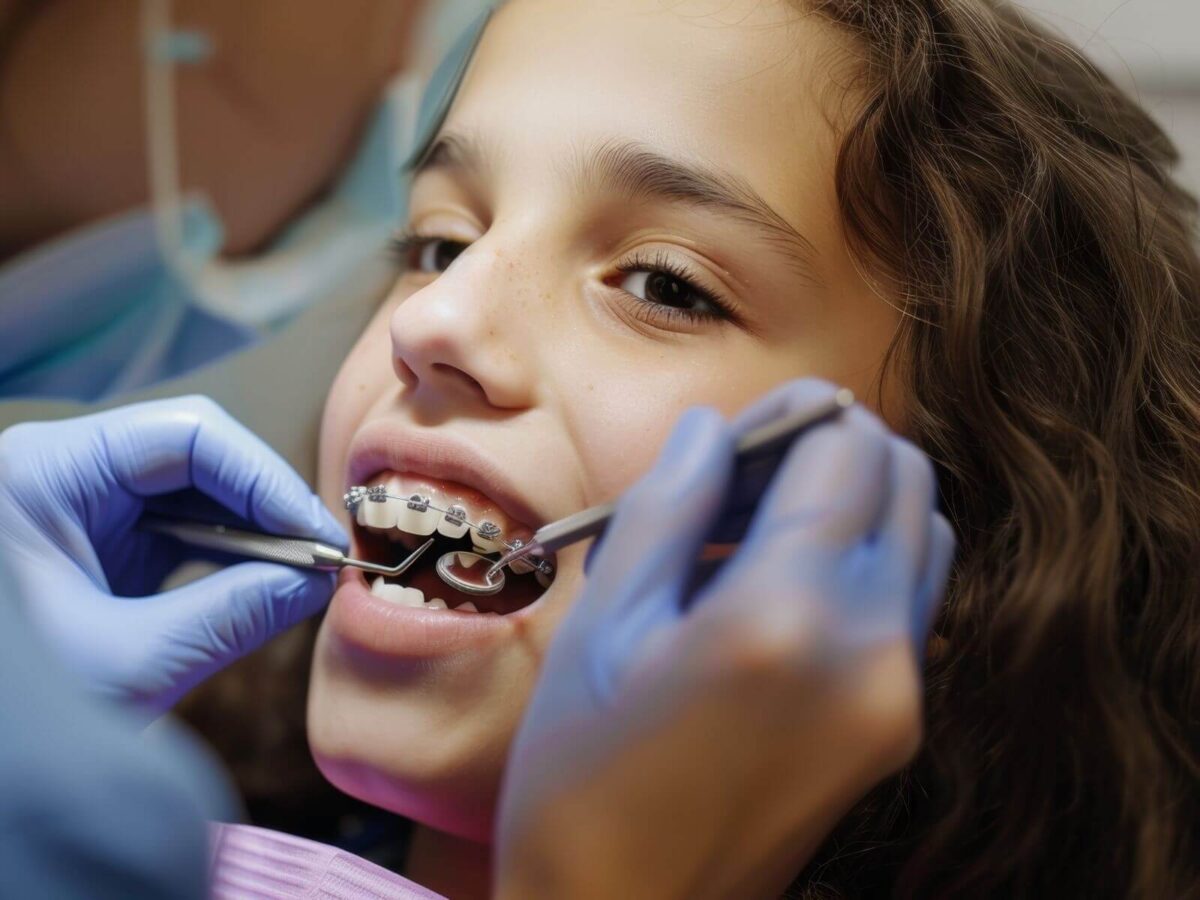Blog
Dental hygiene tips for healthy teeth & gums

How To Handle Dental Emergencies In Children
Due to their active lifestyles and mishaps, children often get dental crises. Knowing how to handle a dental emergency might help your child get treatment immediately and avoid subsequent difficulties.
Learn how to handle toothaches, knocked-out teeth, and damaged braces in children. These children’s dental care tips will keep them safe and comfortable.
Toothaches: Instant Relief Methods
Children can have oral issues, including toothache. Cavities, an infection, or tooth damage could all lead to it.
- Rinse your child’s mouth with warm salt water to help them feel better.
- If the face swells, cover it with a cold compress from the outside in.
- Aspirin can injure the gums; hence, you should not use it directly on a painful area.
- To find the likely reason for the toothache, contact a pediatric dentist right away.
- It is possible that these issues would not arise if they were to brush and floss their teeth daily.
Broken Tooth: Needs Immediate Dental Care
If your child knocks out a permanent tooth, act fast to save it. When pulling up the tooth, avoid pulling on the root and instead utilize the cap.
- Move the teeth and rinse with milk or salt water instead of brushing them.
- Replace the tooth gently in the socket. Your kid should bite a clean cloth to secure the tooth.
- If you are unable to reposition the tooth, keep it wet in milk or saline. Visit a dentist within 30 minutes to save the tooth.
- Restoring baby teeth could harm the growing adult tooth below. Still, a dental appointment is needed to check for tooth damage and gum recession.
Healing Broken Teeth: Saving Fragments
Children who are sports active often chip or break their teeth. Rinsing with warm water will help to clean the mouth.
- Look for any pieces and bring them to the dentist; they could be able to rebuild the tooth.
- A cold compress will help to lower cheek edema.
- Children’s dental care includes over-the-counter painkillers that could help.
- Visit the dentist straight once to determine how the cracked tooth should be repaired or safeguarded.
Bitten Lip or Tongue
Children who are worried or are undergoing dental work may bite their lips or tongue. Rinsing with cold water will promote wound healing.
- To stop the bleeding, gently press with a fresh cloth or tissue.
- A cold compress applied to the outside of the mouth may relieve swelling and irritation.
- If they continue to experience swelling, bleeding, or infection, see your doctor.
Broken Braces and Wires: Orthodontic Emergency
Children may be uncomfortable with broken braces or wires. To decrease irritation, wrap the pointed end of a wire that is pushing into the cheek or gum using orthodontic wax or gauze.
- Cutting cables should be a last choice due to the dangers involved.
- If necessary, use sterilized scissors, but immediately contact your orthodontist. Keep them away from hard foods until they visit an orthodontist to tighten loose braces.
Objects Stuck Between Teeth: Remove Carefully
Food or other small things stuck between kids’ teeth can be painful. Gently remove the thing with a toothbrush. Stay away from sharp things that could hurt your gums and teeth. Warm salt water helps get rid of small particles and makes the mouth feel better. See a dentist if the thing stays stuck or hurts.
Abscess: Treating Infections Fast
Abscesses are swelling and painful gum lumps that can be dangerous infections. It may cause fever or an unpleasant taste. Children’s dental care tips to follow in this situation –
- Warm salt water can minimize edema and pull-out infection.
- OTC painkillers can reduce discomfort.
- Abscesses need dental treatment to prevent infection.
Preventing Dental Emergencies
Though mistakes may happen, these safety precautions can help you avoid many pediatric dental emergencies:
- Regular dental visits help to discover issues early on.
- Work out wearing mouthguards to be safe.
- Brushing and flossing teeth twice a day will help individuals prevent cavities.
- Eat less hard and sticky foods. Hard and sticky treats are bad, so don’t eat them.
Calling an Emergency Dentist for Children’s Dental Care
It is essential to know when to seek emergency care matters. Pain or bleeding that doesn’t go away? See a dentist. If your child has swelling, fever, or pus that could be signs of an infection, they should see a doctor right away.
If you see any damage, like cracked or broken teeth, you should call a dentist right away. Knowing what to do will help you handle your doctor’s phobia. These children’s dental care guidelines for maintaining the teeth of a youngster will enable you to start looking after them. If your youngster visits the dentist routinely, their smile will remain good.


